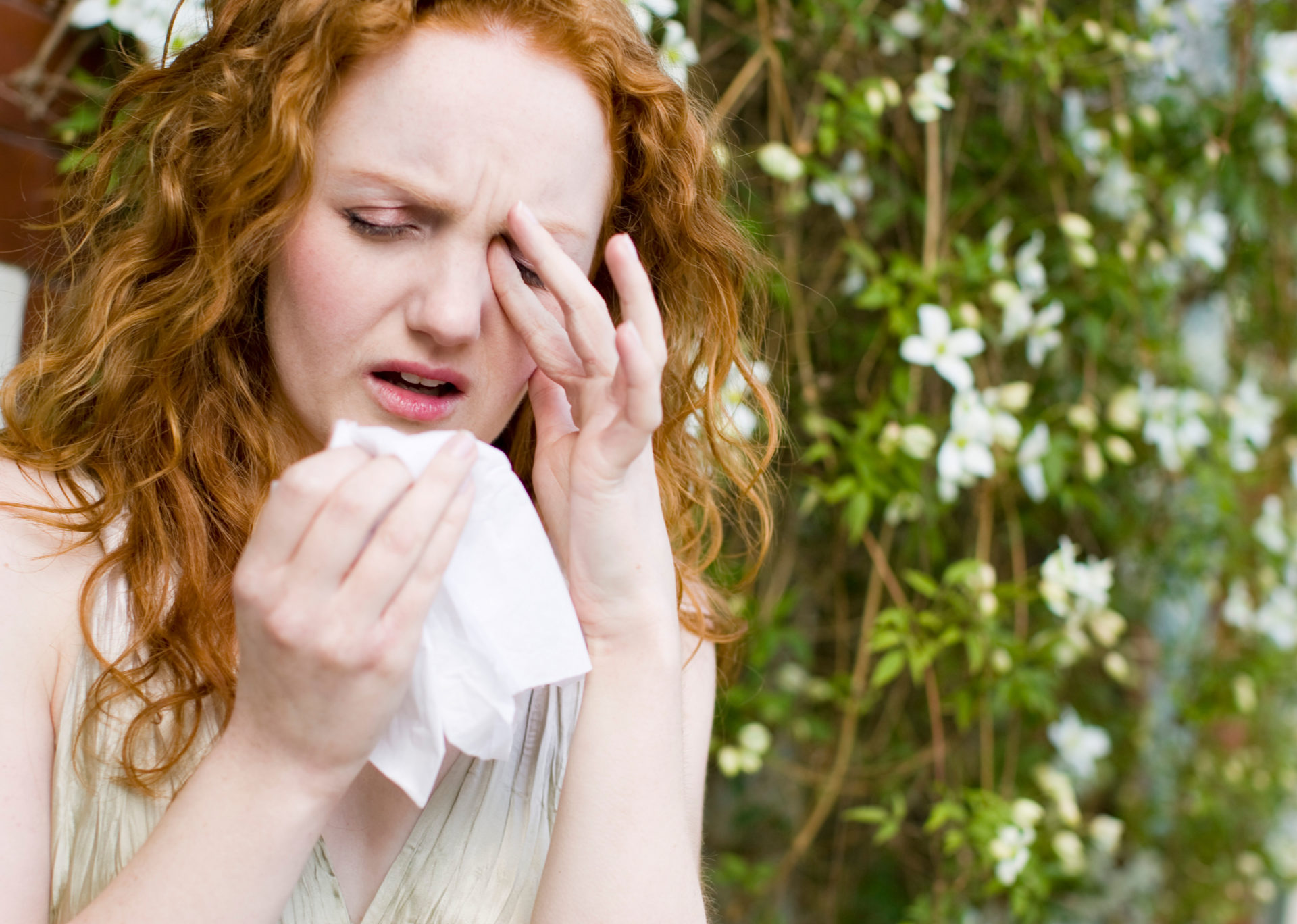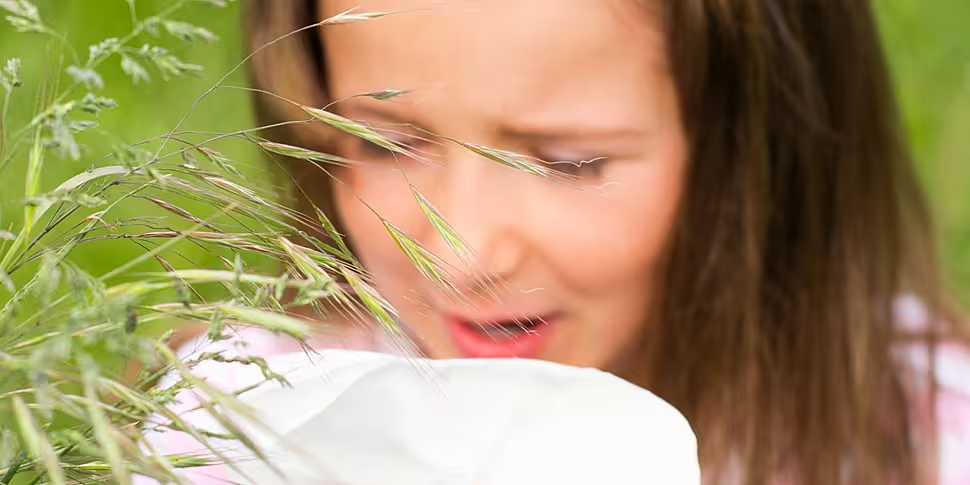The effects of climate change are seeing a rise in hay fever across all childhood age groups.
An International Study of Asthma and Allergies in Childhood (ISAAC) said 2023 was recorded as the hottest year ever for Ireland in 124 years, followed closely by 2022.
Pharmacists are warning that the change is responsible for an "earlier, longer and more intense pollen allergy season in Ireland".
"Carbon pollution continues to warm the planet and has extended the growing season for many flora and fauna. While more CO2 in the air is boosting pollen production," they said.
 A woman with hay fever. Image: Chris Rout / Alamy
A woman with hay fever. Image: Chris Rout / AlamyThere are more than 30 types of pollen and 20 types of spores, all of which can trigger hay fever allergy symptoms.
The prevalence of hay fever among children is rising worldwide with a 6% rise to 19% amongst 13-year olds alone.
A separate recent study in Cork of six to nine-year-olds has shown an increase of 3% in the prevalence of hay fever to almost 11% of this age group.
It is estimated that around 1.25 million people in Ireland suffer from hay fever, of which 20% are children.
GP Dr Illona Duffy told Newstalk Breakfast Ireland has a higher rate than some other countries.
"I think GPs would report that not only are they seeing more people presenting with hay fever and more severe symptoms but definitely that the hay fever season seems to be extended," she said.
"We're seeing patients present earlier in the spring and later into the autumn.
"The average prevalence of hay fever European-wise is about 19% - but in Ireland and the UK we're in the order of 26%.
"It's felt that we probably have more of a variety of pollens because we have more variety of grasses, trees and other plants that trigger the hay fever."
Dr Duffy said the effects are more prevalent for those who are living inland.
"So definitely for us in an island country - someone like myself in Monaghan is going to have higher incidence of hay fever than perhaps someone that's around the coast because the pollen count tends to be lower in these areas," she said.
What to do?
Dr Duffy said people should preempt their allergies.
"We know it can impact on their day-to-day living, going to work, sneezing, snuffling, having itchy, runny eyes," he said.
"If they're already prone to things like asthma it can exacerbate it and for many of them they're saying that to effects their sleep.
"I think the big thing is learning your pattern: when is your worst time?"
'Treatment in advance'
Dr Duffy said hay fever sufferers usually feel the change from March.
"The initial phase starts usually around March and that'll be with the tree pollens," she said.
"Then from May on we tend to see a surge from those who are allergic to grass pollens.
"Understanding when you get your symptoms and being able to start your treatment in advance of that.
"If your someone who gets hay fever every year and you know it's coming to that time start on the medication".
Dr Duffy said other advice includes keeping your windows closed as the pollen count rises throughout the day, which tends to reach a peak around midday.
She added that wearing sunglasses can also potentially help to reduce pollen hitting your eyes.
Listen back here:









